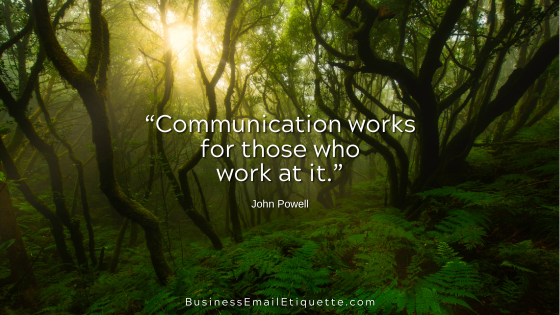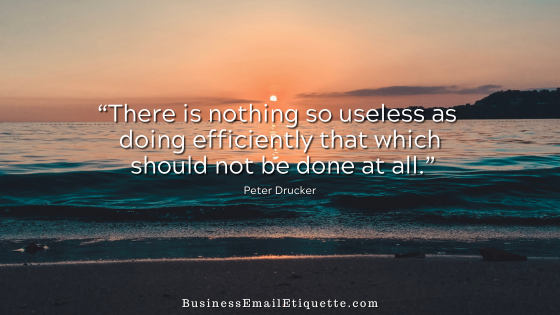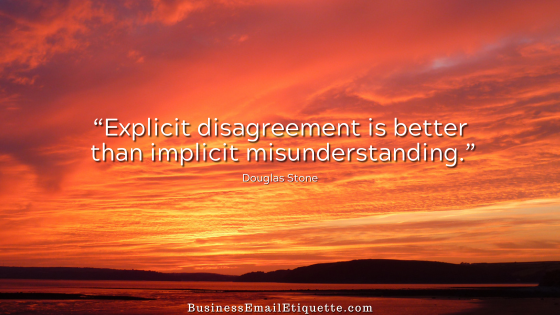How to Say No Reply is Necessary for Business Emails

Who hasn’t looked at their inbox and wondered how to reduce the number of emails that land there? Unfortunately, reviewing and responding to emails takes a lot of time. That’s why it is so important to have a system that helps keep your email activities organized.
Or how about those emails without the basics of email etiquette, with a one-word response that causes you to wonder what part of your email that response refers to?
You then have to send another email asking for clarification. This is because the sender did not correctly down-edit their reply so you would know what comment they were specifically replying to, which dinged your efficiency.
This brings us to a question from a site visitor. One that is based on the desire to be efficient but may be misinterpreted.
A site visitor emailed that he wanted to include “No Need for Reply” in his email or Subject line in his quest to become more efficient and reduce the volume of emails in his inbox. This was his way of letting the other side know they didn’t have to spend time replying because, in his view, a reply is unnecessary.
Is it a good idea or not?
Is this approach practical, or is there a better way to attain his stated goal? It would depend on why you are using that statement.
This is a tactic that I would deploy very selectively and carefully. You want to ensure you are not perceived as dictating or not open to replies, especially if the recipients may have a comment or opinion different from yours.
The one situation that would be safe would be stating information that folks need to know, such as meeting dates and times. In this case, “no need to reply” is probably a safe choice.
Just because you feel there is no reason for a reply does not mean the recipient will feel the same. For example, some could perceive “no need for a reply” as a way of stating you are not interested in their input, opinion, or point of view.
A Different Approach
If you need to avoid unnecessary replies, I suggest using a different phraseology. For example, at the end of your email, before your closing, you could include “…no reply is necessary, just wanted to keep you in the loop.”
This approach doesn’t appear to shut down any questions or comments others may have. However, you know these words at the end of your emails can easily be ignored, right?
You want to make sure that your intent is not to stifle conversation. Instead, if the recipient feels they have something they want you to be aware of, they feel comfortable doing so.






